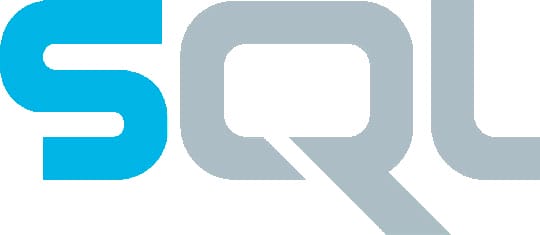SQL is the popular user abbreviation for the Structured query language. This is the language for relational databases. A number of database platforms employ SQL. However, every platform will have to choose the exact SQL to employ. This is where the variations make a difference. The syntax for two different database platforms, Microsoft SQL and MySQL, are different. These are the two most popular database platforms in the word of the web today. Of course, you have to remember that, once you pick one for use, you will find it very tough to switch over to the other. This happens because the platform you choose will actually be the crux for all your existing and future dynamic content. This will store, secure, and retrieve all data for the applications. Therefore, choosing the right SQL platform, Microsoft SQL or otherwise, is an all-important decision.
At a superficial level, both Microsoft SQL and MySQL have similarities:

Both platforms allow you to multiple-host databases on a single server, employ tables for data storage, come laced with main and foreign constraints and employ indexes for sorting data and speeding performances up. The two platforms also support web and desktop applications.
Microsoft SQL comes with a higher age than MySQL. However, both have a solid stronghold in the market. MySQL operates over Linux or Windows as a part of the LAMP environment.
These platforms can allow small as well as large projects in software.
Microsoft SQL and MySQL — At Loggerheads?

Both the Microsoft and the MySQL are relational platforms. Naturally, they come with many similarities. However, the in-built architecture is way different for both.
Scale: Both these platforms can be scaled up as your enterprise grows. The platforms can be spunked up to support millions of daily transactions.
Performance: The database doubles as an application backbone. This is the storehouse of all data. Both these platforms can handle high performances in terms of speed too.
Tables: Both these platforms make use of standard relational table model to for data storage via columns and rows.
Keys: Both foreign and primary keys are used for relationships building in the database, for both platforms.
Syntax: The syntaxes have ample similarities, but there are slight orientation differences in syntaxes for creating, reading, updating and deleting statements. Connection to both these platforms is possible sans complex code.
Recommended for you: Planning an eCommerce Platform? Think Database First.
What Are the Differences Then?

While both platforms have similarity in the interface and basic standards, they have operational differences.
- Compatibility: You may use these databases with Windows and Linux, but the MySQL natively works with PHP while MSSQL natively is tuned with .NET.
- MyISAM and InnoDB: These are MySQL configurations and let developers perform varied programming. With Microsoft SQL, you only make a database without having specific engines.
- Cost: MS SQL Server is more expensive to operate thanks to licensing issues. MySQL comes free and is open-source. Pay is needed only for support requisites.
- IDE tools: Both these platforms come with IDE tools. MSSQL employs Management Studio while MySQL employs Enterprise Manager.
In September last year, Microsoft went ahead to announce a number of changes to all its certifications.
Since then there have been added five certifications to MCSE and the Microsoft Certified Solutions Developer programs. These certs are framed to support the Windows Server 2016 and the Microsoft SQL Server 2016 notably. For the database administrators, this new MCSE: Data Management and Analytics are of heightened interest.
As for the MTA program, this includes one database exam: Database Fundamentals. The credential is pat for students and for entry-level professionals tapping database support as a career option.
For Microsoft Certified Solutions Associate or MCSA, there’s one credential on offer, namely-Microsoft SQL Server 2012/2014. This requires individuals to qualify in three exams. These are:
- Querying Microsoft SQL Server 2012/2014
- Administering Microsoft SQL Server 2012/2014 Databases
- Implementing a Data Warehouse with Microsoft SQL Server 2012/2014
You may also like: Smart Ships: Big Data will Change Shipping in the Near Future.
MCSE

For Microsoft MCSE level, there exist three credentials, namely, Business Intelligence, Data Platform plus and Data Management and Analytics.
For MCSE: Data Platform the requirements are:
- MCSA: SQL Server 2012/2014 cert
- Designing Database Solutions for Microsoft SQL Server
- Developing Microsoft SQL Server Databases
For MCSE: Business Intelligence the requirements are:
- MCSA: SQL Server 2012/2014 cert
- Implementing Data Models and Reports with Microsoft SQL Server Databases
For MCSE: Data Management and Analytics the requirements are:
- MCSA: SQL 2016 Database Development
- MCSA: SQL Server 2012/2014
- MCSA: SQL 2016 Database Administration
- MCSA: SQL 2016 Business Intelligence Development certification
Electives need to be chosen as well from among these:
- Cloud Data Platform Solution Design Plus Implementation
- Big Data Analytics Solutions Design Plus Implementation
- Development of Microsoft SQL Server Databases
- Design of Database Solution for the Microsoft SQL Server
- Implementation of Data Models plus Reports with the Microsoft SQL Server
- Design of the Business Intelligence Solutions using Microsoft SQL Server
The cert needs annual renewal subject to passing the additional elective exam on the candidate’s part.
The Final Call

Any database you pick usually depends on the choice of hosting environment. The best means to pick the apt platform will always be comparing the cases with a developer at the helm.
This article is written by Priya Jatoliya. She is a tech blogger and IT Certification Trainer at Koenig Solutions. She has an experience of 4 years in the industry and has worked for top-notch IT companies. She is IT career consultant for students who pursue various types of IT certifications like Ethical Hacking, Cisco, Microsoft, Oracle, PMP, ITIL, Big Data & Hadoop, VMware and much more.





